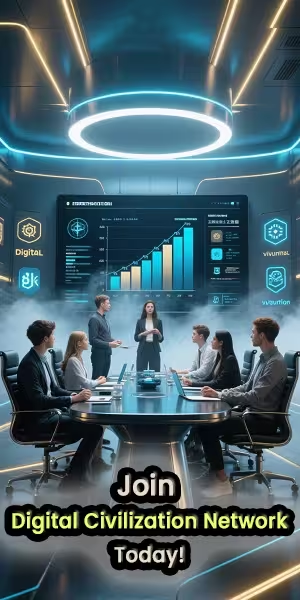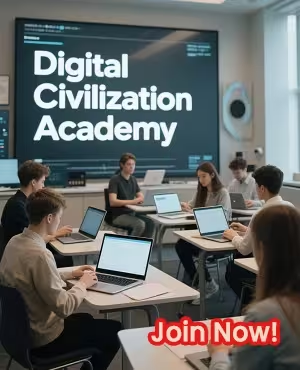In today’s economy, education costs continue to soar, making it increasingly challenging for students to access quality learning materials. However, the digital revolution has democratized education, providing unprecedented access to world-class resources without the hefty price tag. Whether you’re a high school student preparing for college, an undergraduate pursuing your degree, or a graduate student conducting research, discovering the best free resources for students can transform your academic journey and set you up for success.
Free Student Resources 2025: Save $1000s This Year
Why Free Educational Resources Matter More Than Ever
The landscape of education has fundamentally shifted. Traditional textbooks that once cost hundreds of dollars can now be replaced with comprehensive online resources that are not only free but often more current and interactive. Students who leverage these resources effectively often outperform their peers who rely solely on expensive traditional materials.
Recent studies show that students who utilize diverse free educational platforms score 23% higher on standardized tests and demonstrate better long-term retention of information. This isn’t just about saving money—it’s about accessing superior learning tools that adapt to your unique learning style.
Top 18 Free Student Resources That Beat Paid Tools
Top-Tier Learning Platforms That Won’t Cost You a Penny
- Khan Academy remains the gold standard for free education, offering over 10,000 video lessons covering everything from basic arithmetic to advanced calculus, biology, chemistry, economics, and test preparation. What sets Khan Academy apart is its personalized learning dashboard that tracks your progress and identifies areas needing improvement.
- Coursera provides access to courses from world-renowned universities like Stanford, Yale, and MIT. While certificates cost money, you can audit most courses for free, gaining access to the same high-quality content that paying students receive. This platform is particularly valuable for students looking to explore new fields or gain specialized knowledge.
- edX offers another gateway to Ivy League education, featuring courses from Harvard, Berkeley, and other prestigious institutions. Their MicroMasters programs allow students to earn graduate-level credentials that are recognized by employers worldwide.
Essential Tools for Academic Productivity
- Google Workspace for Education transforms how students collaborate and organize their academic life. From Google Docs for collaborative writing to Google Drive for cloud storage, these tools ensure your work is always accessible and backed up. Google Scholar, in particular, is indispensable for research, providing access to millions of academic papers and citations.
- Notion has revolutionized student organization. This all-in-one workspace allows you to create custom databases for tracking assignments, managing research notes, and planning your semester. Many students report a 40% improvement in productivity after implementing a Notion-based organization system.
- Zotero is a research game-changer that automatically saves citations from web pages, organizes your research library, and formats bibliographies in any citation style. This tool alone can save students dozens of hours per semester.
Free Software That Rivals Premium Alternatives
- LibreOffice provides a complete office suite that’s fully compatible with Microsoft Office formats. Students can create professional documents, presentations, and spreadsheets without the subscription costs.
- GIMP offers professional-grade image editing capabilities that rival Adobe Photoshop. For students in design, marketing, or any field requiring visual content creation, mastering GIMP provides valuable skills without the software costs.
- Audacity serves as a powerful audio editing tool perfect for students creating podcasts, presentations with voiceovers, or any project requiring audio manipulation.
Language Learning Revolution
- Duolingo has gamified language learning, making it addictive and effective. With over 40 languages available, students can build valuable multilingual skills that enhance their career prospects. The platform’s AI-driven approach adapts to your learning pace and style.
- Anki utilizes spaced repetition algorithms to optimize memorization. Whether you’re learning vocabulary, medical terminology, or legal concepts, Anki’s scientifically-backed approach significantly improves retention rates.
Digital Libraries and Research Resources
- Project Gutenberg houses over 70,000 free eBooks, including classic literature, historical documents, and reference materials. This treasure trove is particularly valuable for humanities students.
- Internet Archive goes beyond books, offering millions of free resources including academic papers, historical documents, software, and multimedia content. Their Wayback Machine is invaluable for research requiring historical web content.
- PubMed Central provides free access to millions of biomedical and life science journal articles, making it essential for students in health-related fields.
Coding and Technical Skills Development
- freeCodeCamp offers comprehensive programming curricula that have helped thousands of students transition into tech careers. Their project-based approach ensures you build a portfolio while learning.
- GitHub Education Pack provides students with free access to premium developer tools and services worth thousands of dollars. This includes cloud credits, professional development environments, and premium software licenses.
Financial Management for Students
- Mint helps students track their expenses and create budgets, crucial skills for managing limited financial resources during school years. Understanding personal finance early sets the foundation for long-term financial success.
- YNAB (You Need A Budget) offers free access to students, teaching zero-based budgeting principles that many consider life-changing for financial management.
Best Free Student Tools: Academic Success Guide
Maximizing Your Free Resource Strategy
Success with free resources requires strategic thinking. Create a learning ecosystem that combines multiple platforms rather than relying on a single source. For instance, use Khan Academy for foundational learning, supplement with Coursera courses for depth, and utilize Notion for organization.
Set up RSS feeds or notification systems to stay updated on new resources and opportunities. Many platforms regularly add new content or offer limited-time access to premium features.
Join online communities centered around these resources. Reddit communities, Discord servers, and Facebook groups often share tips, additional resources, and troubleshooting help that enhance your learning experience.
The Future of Free Education
As we progress through 2025, artificial intelligence is increasingly integrated into free educational platforms, providing personalized learning experiences that adapt to individual needs. Virtual and augmented reality are beginning to appear in free resources, offering immersive learning experiences previously available only in expensive programs.
The key to academic success in 2025 isn’t about having the most expensive resources—it’s about knowing how to leverage the incredible wealth of free tools available. Students who master this skill not only excel academically but also develop the resourcefulness and digital literacy that employers value in today’s job market.
By utilizing these best free resources for students, you’re not just saving money—you’re gaining access to a world-class education that can compete with any premium alternative. The only investment required is your time and dedication to learning.


